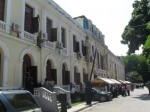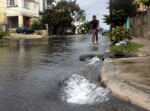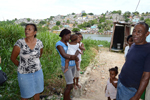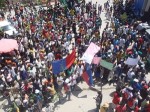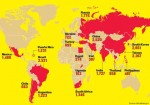Sabotage Leaves Cap Haitien Without Municipal Water | Haïti-Eau potable : Rareté au Cap Haïtien, le système saboté
By Wedlyne Jacques, AlterPresse | Translation by Dady Chery, Haiti Chery. No water from the taps of Cap Haitien residents since early 2012. And they must walk several kilometers to reach a source of water. Some people report that they wake up as early as 2:00 to 5:00 am to queue for half a day to buy water that is not even fit for drinking. (English | French)
Continue reading →

